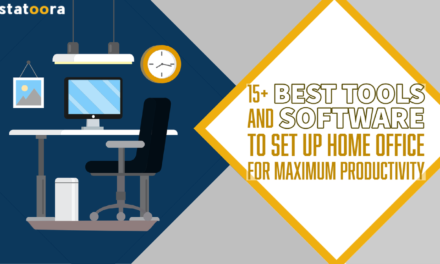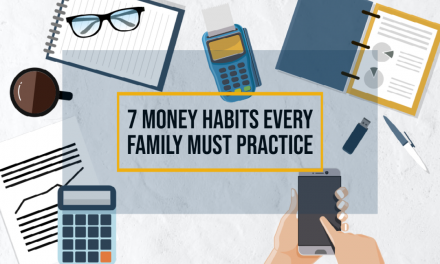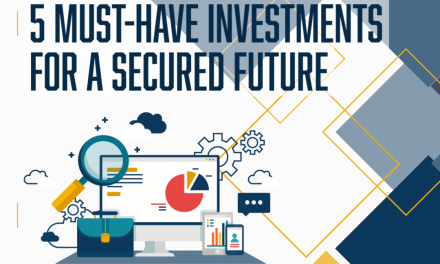Content Guide
Ten Bad Spending Habits to Break for Millennials Content Guide
- Content Guide
- Introduction
- 1. Relying on Credit Cards
- 2. Not Sticking to Your Budget
- 3. Not Preparing for an Emergency
- 4. Keeping up with the Trends
- 5. Having That YOLO Mindset
- 6. Personal Vices
- 7. Always Wanting Convenience
- 8. Not Prioritizing Career and Self-Growth
- 9. Not Contributing to Investment Plans
- 10. Making Excuses
- Wrap Up!
Introduction
There is no doubt that life gets more expensive each and every year.
For millennials in particular, this makes it harder to live the way they wish to live and enjoy a particular lifestyle.
Nevertheless, all millennials can enjoy a better and less expensive life if they begin by eliminating unnecessary expenses. Also, if they learn how to save just a little bit more each month.
And it isn’t just retirement that millennials should be concerned with. It’s also being able to live comfortably here and now so that they don’t feel as though they’re barely keeping their heads above water, which is not a fun way to live.
More Than Just the Basics
Making a budget plan and sticking to it is something most people do. But this is not to say that it is easy to do this.
Fortunately, you have more resources available than ever before. Even if you’re currently not making that much money, you can still learn to budget what you do have. This is so your bills get paid and you save a little bit of money each and every month.
In addition, there are things that millennials can do to improve their finances, including breaking bad spending habits.
Let’s face it; we all have those. Even if you don’t realize it, you have habits that, if changed, can help your bank account to continuously grow.
Below are some of the spending habits that millennials should break if they want their finances to get much better.
1. Relying on Credit Cards
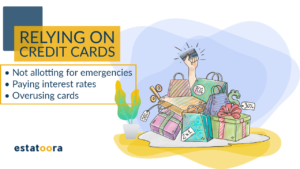 While having one credit card is a good idea, that card should be considered for emergencies only.
While having one credit card is a good idea, that card should be considered for emergencies only.
Many people rely on their credit cards for things other than emergencies. And it’s super easy to rely on it too much from that point on.
With most credit cards charging double-digit interest rates, you’ll be paying for that order of cheese fries for the next ten years if you’re not careful.
When shopping for a credit card, research them. Make sure that you get one with the lowest interest rate.
Keep it in a secured place so that you won’t be over-using it and getting yourself in trouble.
You can also choose a credit card with a low limit, say $300 or $500. This way, even if you max it out, the amount you’ll have to pay off won’t be that exorbitant.
If you can, try to live without credit cards at all. However, if you want to keep one for emergencies, make sure that’s the only time you use the card.
2. Not Sticking to Your Budget
 If you make a budget and don’t stick to it, you might as well not make one at all. That being said, everyone goes over their budget every now and then. That’s nothing to be concerned about.
If you make a budget and don’t stick to it, you might as well not make one at all. That being said, everyone goes over their budget every now and then. That’s nothing to be concerned about.
Still, if you consistently ignore your budget, you’ll never be able to stay on track financially. You should make your budget and then look at it at the beginning of every month. Prepare yourself for what you need to do.
If you find that you need to change the numbers at some point, that’s fine. But you should never ignore it altogether or just stick to pieces of it and ignore the rest.
And this brings us to another point. In the beginning, you have to make sure that your budget is realistic and workable. If you set goals too high — for instance, saying you’re going to put $500 in your savings every month.
Even though you know that’s impossible to do — you’ll only disappoint yourself. Be realistic with your budget. Or else you’ll end up taking out a loan or maxing out that credit card to pay your bills.
3. Not Preparing for an Emergency
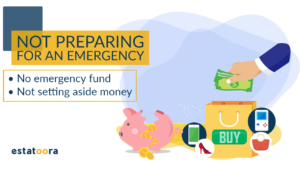 Not preparing for an emergency is a great way to reduce the amount of money in your bank account. It also increases the odds of over-using your credit card.
Not preparing for an emergency is a great way to reduce the amount of money in your bank account. It also increases the odds of over-using your credit card.
When an emergency happens, it is always best to pay for it out of a cash fund. The only way to have the money is to save up for an emergency fund. Keep it in a separate location from the rest of your bank accounts.
Many financial experts recommend having an emergency fund that is equal to three to six months’ worth of living expenses.
However, if this is impossible for you, you should have some type of fund specially designated as emergency money. Even if it’s only a small amount of cash.
A separate account with emergency money in it is always beneficial and it can give you great peace of mind month after month, year after year.
4. Keeping up with the Trends
 We’ve all heard the expression “keeping up with the Joneses” and this habit can drive you straight to the poorhouse.
We’ve all heard the expression “keeping up with the Joneses” and this habit can drive you straight to the poorhouse.
If you insist on having the latest electronic gadgets, brand-name clothes and purses, and all of the other expensive things that seem to be the latest trend or fad, you’ll never have enough money to do the things you want to do, such as saving for retirement and creating an emergency account.
Keep in mind that you don’t have to have the “latest” of anything. Trying to do so is always a bad thing for your finances.
If you think that you’re going to have trouble sticking to this plan, you might want to just change your mindset. Once you change your mindset, you no longer feel that you need these things. It will be a lot easier to stop spending so much money just to keep up with other people.
5. Having That YOLO Mindset
 Much of the millennials generation has adopted the “you only live once (YOLO)” attitude. That causes them to spend money as if there is no tomorrow. If they see something they want, they immediately get it, and to heck with a budget.
Much of the millennials generation has adopted the “you only live once (YOLO)” attitude. That causes them to spend money as if there is no tomorrow. If they see something they want, they immediately get it, and to heck with a budget.
In fact, many millennials don’t even have a budget, which is even worse. The mindset that if you want something now, you should get it now is a dangerous one. Even if you’re making good money.
The truth is that the YOLO mindset can ruin anybody’s budget. It can empty a savings or checking account faster than you think.
Actually, it’s a great idea for everyone not to have this mindset. Because once you adopt it, you’ve just given yourself permission to live as if getting what you want is the only thing that’s important.
Realize that getting what you want, when you want it is not necessarily the best way to live. Especially when it comes to your financial situation.
Your finances simply deserve better treatment than that.
6. Personal Vices
 This is similar to a YOLO mindset but it isn’t as extreme. People can have vices and not even realize that’s what they are.
This is similar to a YOLO mindset but it isn’t as extreme. People can have vices and not even realize that’s what they are.
Your vice might be stopping at Starbucks once or twice a week. Eating lunch out every work day. Or even taking the family out to a movie once a week. All these things may not sound expensive, but if you do them every single week, the money adds up quickly.
In fact, most people notice a huge difference in their budgets immediately by eliminating one of their vices. Their finances improve drastically when two or more vices are eliminated.
And it’s a lot easier than you think to do this. Because just as with the habit of getting coffee on a regular basis, stopping those things is just as easy. Even stopping one of your vices can make a big difference in your finances.
7. Always Wanting Convenience
 Convenience in any form is going to cost you and the money you pay for it adds up very quickly. You want to order from a food delivery service because you don’t feel like going to pick it up or you might want to receive items from an online store even faster so you pay for speedy delivery.
Convenience in any form is going to cost you and the money you pay for it adds up very quickly. You want to order from a food delivery service because you don’t feel like going to pick it up or you might want to receive items from an online store even faster so you pay for speedy delivery.
Things such as this cost extra and, again, those “extras” add up before you know it. You may not realize that you’re doing this. But if you take a bank statement and highlight all of these extraneous expenses you’re spending money on, it will quickly become clear which of those expenses you can eliminate to save yourself some money.
Even if your career path has led you to a well-paying job, wasting money on convenience is highly discouraged.
Again, cutting out small habits can result in a lot more savings so it is definitely worth doing this.
8. Not Prioritizing Career and Self-Growth
 When you land that job you’ve been after, it’s good to remember that this is only the start. Not an ultimate goal.
When you land that job you’ve been after, it’s good to remember that this is only the start. Not an ultimate goal.
Planning for the future means not just deciding which job you want right now. You should never think of a job just as a way to pay your house note and your car loan.
It is definitely much more than that. And the more you prioritize your career, the more likely you are to make good money.
While money should never be the only reason why you take a job, the truth is that you can grow your finances much better with a job that pays more money.
Self-growth is another aspect of both your career and your personal life.
Deciding what you want in life and going after it feels good, especially when you succeed, and you’ll almost always improve your finances by making these two areas of your life a priority.
9. Not Contributing to Investment Plans
 When you’re young, it’s easy to ignore investing, especially since it’s so difficult to imagine yourself being that age one day.
When you’re young, it’s easy to ignore investing, especially since it’s so difficult to imagine yourself being that age one day.
But the truth is that retirement will pop up a lot sooner than you realize. The sooner you start preparing for it, the better off you’ll be once you retire from work.
Even small amounts of money saved now will add up faster than you might think.
If you work with an investment counselor or enroll in an automatic savings plan of some type, your money builds up even faster.
10. Making Excuses
 And here is a very common reason for your finances being amok — you’re making too many excuses!
And here is a very common reason for your finances being amok — you’re making too many excuses!
Excuses can ruin your plans for being financially stable right now and for being properly prepared for your eventual retirement.
The good news is that regardless of where you are financially or career-wise, you can stop making excuses.
Start being in better control of your finances at any time. If you’re just getting started, write that business plan and apply for that business or personal loan in the Philippines. So you can start your business and start planning for your future.
Even in your 40s or 50s, you can turn your life around. Learn about other tips that can help both you and your money grow.
Wrap Up!
Being in control of your finances is not that difficult.
The first step is taking a good look at them so you can figure out which habits you need to break in order to make things better for yourself.


